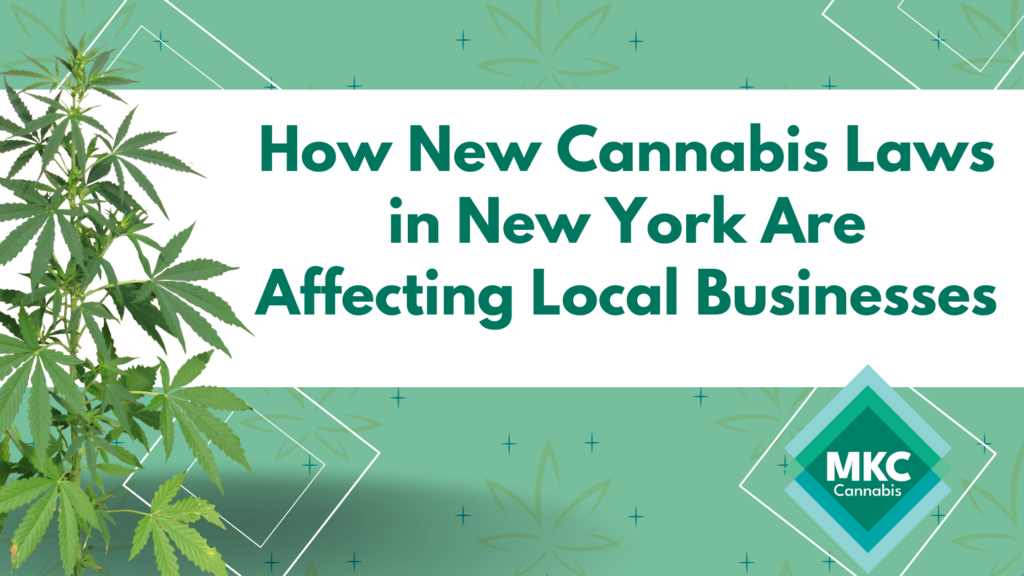With the continued evolution of cannabis laws across the United States, New York has implemented groundbreaking changes, creating both new challenges and opportunities for local businesses. These shifts are reshaping the cannabis market and influencing a wide range of industries, from retail and agriculture to finance and tourism. In this blog, we’ll explore how the new cannabis laws in New York are impacting local businesses, what new opportunities are emerging, and what challenges lie ahead.
1. An Overview of the New Cannabis Laws in New York
Recent cannabis legislation in New York has opened up fresh avenues for businesses, with notable changes such as:
- Legalization of recreational cannabis for adults, leading to an influx of new business ventures and consumer interest.
- New licensing opportunities for cultivation, retail, and delivery services, with special incentives for equity applicants.
- Decriminalization measures reducing penalties for minor possession, fostering a shift in the perception of cannabis use.
These updates underscore New York’s commitment to building a progressive and inclusive cannabis industry, responsive to both public demand and industry growth.
2. Opportunities for Local Cannabis Businesses
The new laws have created exciting opportunities for cannabis entrepreneurs in New York. As the state joins the ranks of legal recreational cannabis states, demand is surging for diverse products, and New York businesses are well-positioned to meet these needs. Key opportunities include:
Expanded Retail and Delivery Services
With the green light for recreational retail, cannabis businesses can now reach customers directly through licensed dispensaries and delivery services, enhancing accessibility and convenience. Delivery, in particular, meets strong consumer demand, especially among medical patients and those preferring at-home service.
Growth in Cultivation and Manufacturing
The recent changes have allowed for more cultivation licenses, enabling both small-scale growers and larger operators to enter the market. This has not only increased product variety but also sparked innovation, including interest in sustainable, urban farming techniques unique to New York’s landscape.
Job Creation and Economic Growth
As cannabis businesses launch and expand, job creation is accelerating across sectors. From retail staff and delivery drivers to agricultural workers and product manufacturers, the cannabis industry is becoming a significant source of employment in New York, driving economic growth.
Example: States like California have seen over 400,000 jobs created in the cannabis sector (Leafly Jobs Report), and New York could follow suit as the industry grows.
3. Challenges Facing Local Businesses Under New Cannabis Regulations
While the new cannabis laws in New York open up exciting possibilities, they also introduce challenges that businesses must navigate carefully:
Navigating Complex Compliance Standards
Cannabis businesses in New York must adhere to strict regulations regarding product testing, labeling, and security. Staying compliant is resource-intensive and requires investment in legal guidance and consistent operational oversight, which can be challenging for smaller businesses.
Financial Barriers and Limited Banking Access
Due to federal restrictions, cannabis businesses often struggle to access traditional banking services, making it difficult to secure loans or open business accounts. This limitation can be a significant hurdle, forcing many businesses to rely on cash transactions or alternative financing solutions.
Advertising and Marketing Restrictions
Cannabis businesses in New York face strict guidelines on advertising, limiting their ability to promote products through conventional channels. Social media platforms often restrict cannabis-related content, pushing businesses to adopt alternative methods like content marketing and local partnerships.
Example: In Massachusetts, similar advertising restrictions have led cannabis businesses to focus on educational content and community engagement as creative ways to reach customers.
4. The Impact on Non-Cannabis Local Businesses
Interestingly, the effects of cannabis legalization in New York extend beyond the cannabis sector itself. Industries such as real estate, tourism, and agriculture are also experiencing notable changes:
Real Estate Demand for Cannabis-Friendly Properties
As cannabis businesses expand, so does demand for commercial real estate suited to dispensaries, cultivation sites, and processing facilities. Some landlords are now specializing in cannabis-friendly properties, which often command premium prices.
Tourism Boost and Cannabis Tourism Initiatives
States with recreational cannabis laws have seen an influx of cannabis tourism, attracting visitors interested in dispensaries, consumption lounges, and tours. New York’s hospitality businesses, from hotels to tour operators, are starting to offer cannabis-friendly options, tapping into this burgeoning market.
Agricultural Adaptation
Farmers across New York have started exploring cannabis cultivation as a profitable alternative to traditional crops. This shift not only diversifies the agricultural landscape but also strengthens local economies through partnerships with processors and retailers.
Example: Oregon’s adaptation to cannabis farming transformed rural economies, encouraging sustainable farming practices that meet consumer demand.
5. Community and Social Equity Initiatives
New York’s cannabis laws include a strong focus on social equity, aiming to support communities historically impacted by prior cannabis laws. Social equity initiatives may include:
Priority Licensing for Social Equity Applicants
New York offers licensing advantages to applicants from communities disproportionately affected by previous drug laws. This approach fosters diversity and inclusion within the industry and provides pathways for small business owners to participate in the cannabis economy.
Investments in Community Development
Revenue from cannabis sales is earmarked for community initiatives, including education, substance abuse prevention, and infrastructure improvements. This reinvestment not only supports community growth but also builds public goodwill and ensures that legalization benefits are shared more broadly.
Example: California’s social equity program has set a precedent for supporting equity-focused businesses through financial resources and training, a model that could have a transformative impact in New York as well.
6. What’s Next for Cannabis Businesses in New York?
With the new laws in place, cannabis businesses in New York are poised to grow, but the evolving regulatory landscape will require adaptability, innovation, and a commitment to compliance. For local entrepreneurs, staying informed about regulatory updates, exploring alternative marketing strategies, and fostering community partnerships will be crucial for sustainable success.
Closing Thoughts
As New York’s cannabis laws continue to evolve, their impact on the state’s economy and business environment is just beginning to unfold. From the rise of new cannabis companies to the creation of job opportunities and social equity initiatives, these changes are transforming communities and spurring economic growth.
Interested in building a strong brand for your cannabis business in this new landscape? Check out MKC Cannabis’s Brand Guide for actionable insights, and explore our portfolio to see how we’re helping cannabis businesses like yours thrive.







